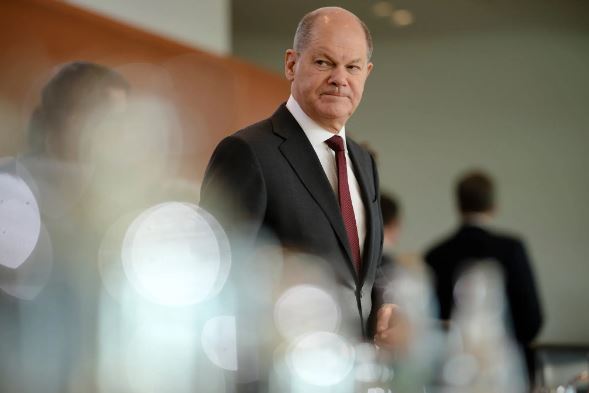Germany has put forth a strategy to address an impending budget crisis, aiming to fill a financial gap in its spending plans without resorting to additional debt. The proposal, revealed amid concerns about Europe’s largest economy and heightened tensions within the three-party governing coalition, is spearheaded by Finance Minister Christian Lindner. The plan involves creating a special budget to cover energy subsidies, responding to a court ruling that declared repurposing a pandemic-era credit line for environmental projects unconstitutional. The recent court decision had invalidated portions of the 2023 budget due to borrowing limits, causing uncertainty and prompting the government to suspend the budget approval process. Chancellor Olaf Scholz’s administration faced turmoil as the court ruled that funds for green projects had to come from the regular budget, leaving a significant gap.
The country’s highest court found elements of the 2023 budget invalid due to a rule limiting borrowing, known as the “debt brake.” This provision can only be suspended in emergencies, and the government had previously invoked it during the pandemic and Russia’s invasion of Ukraine. Finance Minister Lindner, from the Free Democrats party, pledged adherence to borrowing limits for the 2023 budget while seeking a secure legal basis for previously used crisis funds. Chancellor Scholz, facing pressure from economists, business leaders, and coalition lawmakers, urged clarity on spending plans for 2023 to secure stability and enable the approval of the 2024 budget. The original plan was to approve next year’s budget on Thursday, but the process was postponed following the court ruling. Some suggested that declaring an emergency for 2023, citing high energy prices linked to Russia’s war, could justify a suspension of borrowing limits.
Germany’s economic outlook for 2023 anticip a contraction, influenced by sluggish industrial production and high inflation. The uncertainty surrounding the budget and potential lack of investment in critical areas like infrastructure and green industries may jeopardize the projected return to economic growth in 2024. The repercussions may extend beyond Germany, impacting the wider European economy if reduced government spending hampers economic recovery efforts. The Organization for Economic Cooperation and Development (OECD) expressed concerns about the potential impact on the European Union’s economy if Germany reduces investments and spending in the coming years.
In 2009, Germany imposed self-imposed borrowing limits, enshrined in its constitution through the debt brake law, restricting annual borrowing to 0.35 percent of gross domestic product (GDP), roughly €12 billion annually. The law allows exceptions for emergencies, such as natural disasters or pandemics. The recent court ruling clarified that funds borrowed during a specific emergency could not be redirected for other purposes. A forthcoming proposal on how to rectify the 2023 budget will be presented to Chancellor Scholz’s cabinet next week, with parliamentary approval anticipated once ministers endorse the plan. The outcome will have implications not only for Germany’s economic trajectory but also for the broader European economic landscape.
In conclusion, Germany’s unveiling of a plan to address its budget crisis reflects the challenges posed by constitutional constraints and recent court rulings. The focus on creating a special budget for energy subsidies underscores the intricate balance required to navigate fiscal responsibilities amid evolving economic conditions. As Germany grapples with the intricacies of its budgetary decisions, the broader impact on the European Union’s economic dynamics remains a significant consideration. The outcome of this process will be closely monitored as it unfolds in the coming weeks, shaping the economic trajectory of both Germany and the region.

